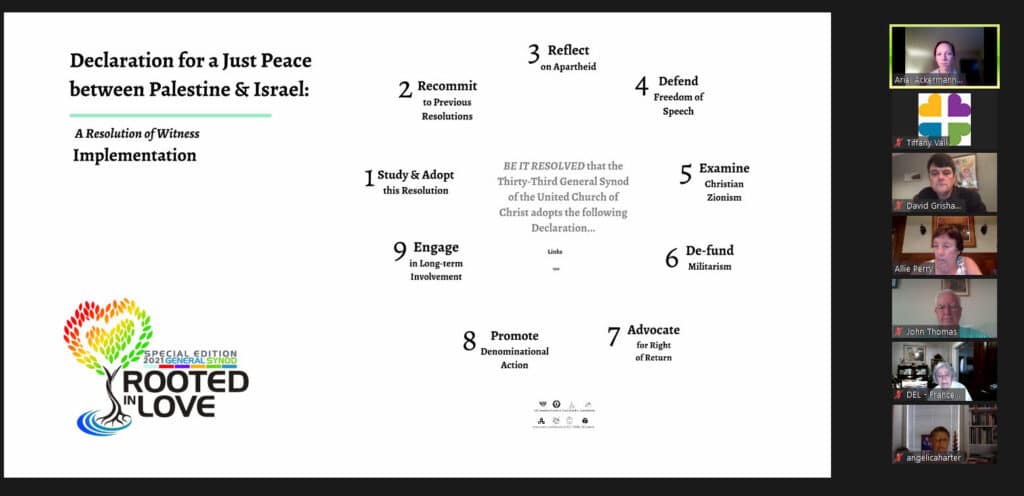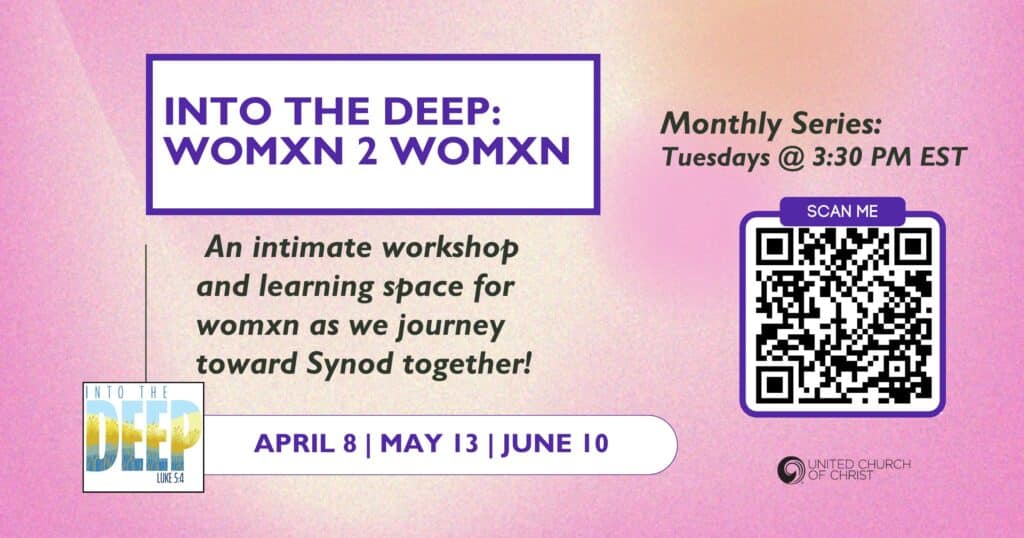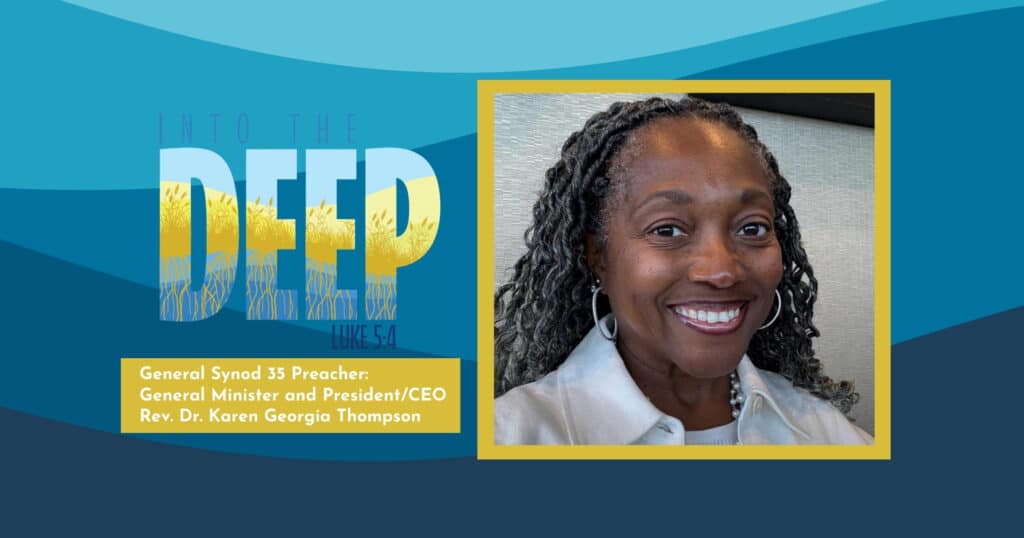Implementation conversations shed light on next steps
Every two years, delegates from across the United Church of Christ come together at General Synod and spend hours discussing, amending and debating resolutions on topics from environmentalism to racism to gun control.
The question is often asked, however: what happens after the votes are taken, the pronouncements made, and the delegates return home (or at least back to their regular routines)?
This year, in an attempt to make sure resolutions aren’t quickly forgotten, General Synod planners scheduled hour-long “Implementation Conversations,” in which resolution proponents could take time leading discussion around what actions could be taken to further their causes if and when the resolutions are approved.
Ensuring follow-up
The Rev. Marsha Williams, who chairs the UCC Board’s Committee on Disposition, said the idea for the conversations grew out of a resolution that was directed to the Board after the last Synod, that had called for developing a process to make sure there was follow-up on resolutions.
“There was discussion that many times it appeared that the Synod would pass resolutions and that would be the last that anyone would hear about the particular topic,” she said. “The UCC Board Governance Committee proposed creating these Implementation Conversations as a means for the resolution submitters to share with delegates how the changes or work proposed in their respective resolution might be carried out at the local and Conference levels within our denomination.”
“The goal of these conversations is to share ways to ‘put feet’ to the resolutions passed in plenary,” she said. “The hope is that as resolution submitters share thoughts and ideas on carrying out the General Synod decisions, folks will take the ideas discussed back to their local settings and craft ways to ‘implement’ those decisions.”
Educating delegates
Like everything else this year, the conversations had to be held in virtual spaces instead of in person, as originally envisioned. And the way the business ended up taking place, the conversations occurred before the final plenary session – and therefore before some of the resolutions were taken up.
But resolution proposers took advantage of the opportunity to further educate delegates on what they could do on the various topics, and dozens of delegates attended each session.

Proponents of a “Declaration for a Just Peace Between Palestine and Israel” resolution spent their time giving a detailed presentation on the various steps that could be taken by individuals, congregations, associations, conferences and the national setting. The included such things as studying this resolution, recommitting to previous resolutions on the topic, and supporting those in the secular world trying to speak out on the topic.
Similarly, proponents of the “Resolution to Declare and Respond to Racism as a Public Health Crisis” referred delegates to online resources they could use to learn more about the issues, and to lead wider discussions and advocacy efforts in their communities.
Williams said she anticipates that the UCC Board will evaluate how the conversations were received, and tweak the concept if necessary going forward.
Tiffany Vail, director of media and communications for the Southern New England Conference, United Church of Christ, is a General Synod Newsroom volunteer.
Related News
2025 Climate Hope Art Contest award winners plant seeds of hope
The celebration of the 2025 Climate Hope Art Contest for children and youth of the United...
Read More‘Not your typical webinar’: Womxn 2 Womxn series aims to foster community
As the church works towards gathering this summer at General Synod 35 in Kansas City,...
Read MoreThompson to bring a ‘prophetic and pastoral’ message to Synod: ‘We are not all the same, but still one body’
On Sunday, July 13, the Rev. Dr. Karen Georgia Thompson will take the stage at the 35th...
Read More



